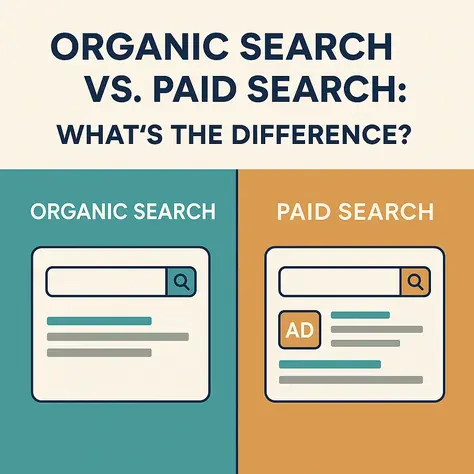Table of Contents
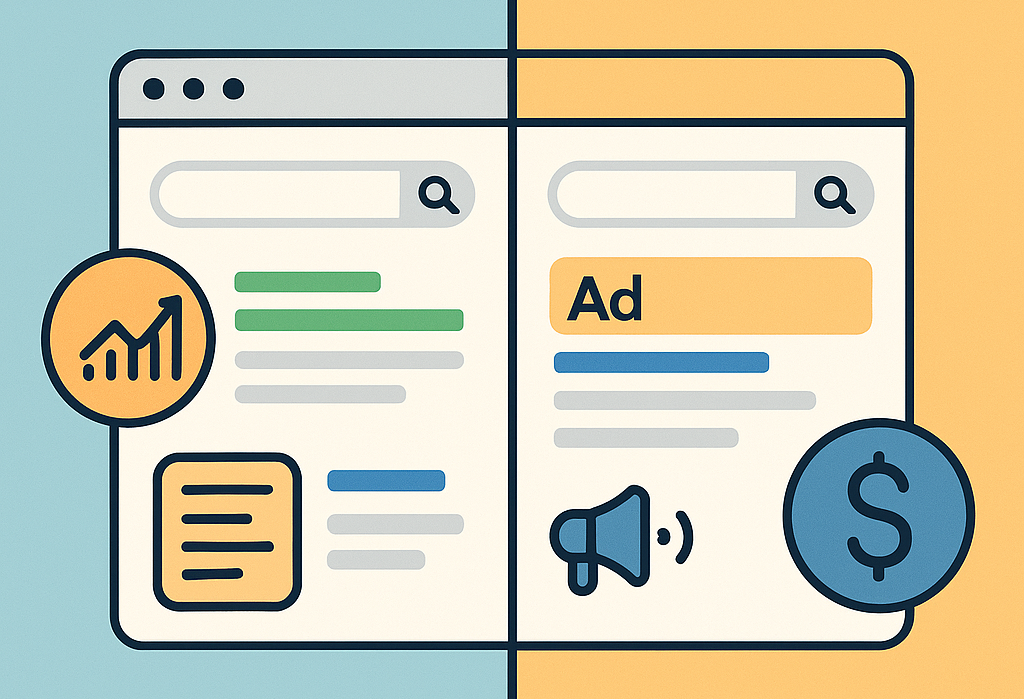
Every time someone types a query into Google, two types of results appear: organic search results and paid search ads. But as a business owner or marketer, which one should you focus your time and money on?
This is the classic Organic Search vs Paid Search debate — and it’s more important than ever in 2025. With increasing competition online and evolving algorithms, brands are constantly trying to find the best balance between long-term visibility and short-term wins.
According to a 2024 BrightEdge research, 53% of all website traffic comes from organic search, while paid search drives around 27%. That means both are powerful, but in different ways.
Whether you’re building a brand, launching a product, or scaling your online presence — understanding the difference between paid vs organic search is crucial for any digital marketing services strategy.

In this blog, we’ll break down the real differences between paid vs natural search, the pros and cons of each, and how to decide which is right for your goals — or whether combining both is the smartest move.
What is Organic Search?
Organic search refers to the unpaid results that appear on a search engine results page (SERP) based on relevance to the user’s query. These are the listings you don’t have to pay for — they show up naturally, thanks to good SEO.
When someone types “best running shoes” into Google, and clicks on a result not labeled as an ad — that’s organic search traffic.
These results are influenced by many SEO factors like:
- Content quality and relevance
- Keywords used naturally
- Page load speed
- Backlinks and domain authority
- Mobile-friendliness
According to BrightEdge, over half (53%) of all trackable website traffic comes from organic search. It’s often called natural search because you’re not paying for clicks — you earn them with valuable content and optimization.
In the long run, organic traffic is more sustainable, more cost-effective, and builds credibility and trust with users.
So, for the long run, in the debate of paid vs organic search, organic search takes the lead.
What is Paid Search?
Paid search (often called PPC or pay-per-click) refers to the advertisements you see at the top or bottom of search engine results pages. These are clearly marked as “Sponsored” or “Ad.”
In paid search, businesses pay to appear for specific keywords, and each time someone clicks their ad, they pay a fee — hence the name. The most popular platform for this is Google Ads, followed by Bing Ads and other PPC networks.
Let’s say you search for “best running shoes” — the first 2–4 results that appear above the organic listings are paid search ads.
So, what’s the difference between paid search and organic search?
- Organic results vs paid results come down to cost, speed, and control.
- Paid search offers instant visibility but at a price.
- Organic search takes time to rank but builds long-term authority.
One major advantage of paid search is targeting. You can:
- Choose specific locations
- Set your audience demographics
- Test multiple versions of ad copy
- Track results instantly
According to WordStream, businesses earn an average of $2 for every $1 spent on Google Ads, making it a powerful tool when used strategically.
But remember — organic search vs paid search is not just about clicks. It’s about the intent, trust, and cost behind those clicks.
In short run, the competition between natural search vs paid search, paid search takes the lead.
Key Differences Between Organic vs Paid Search
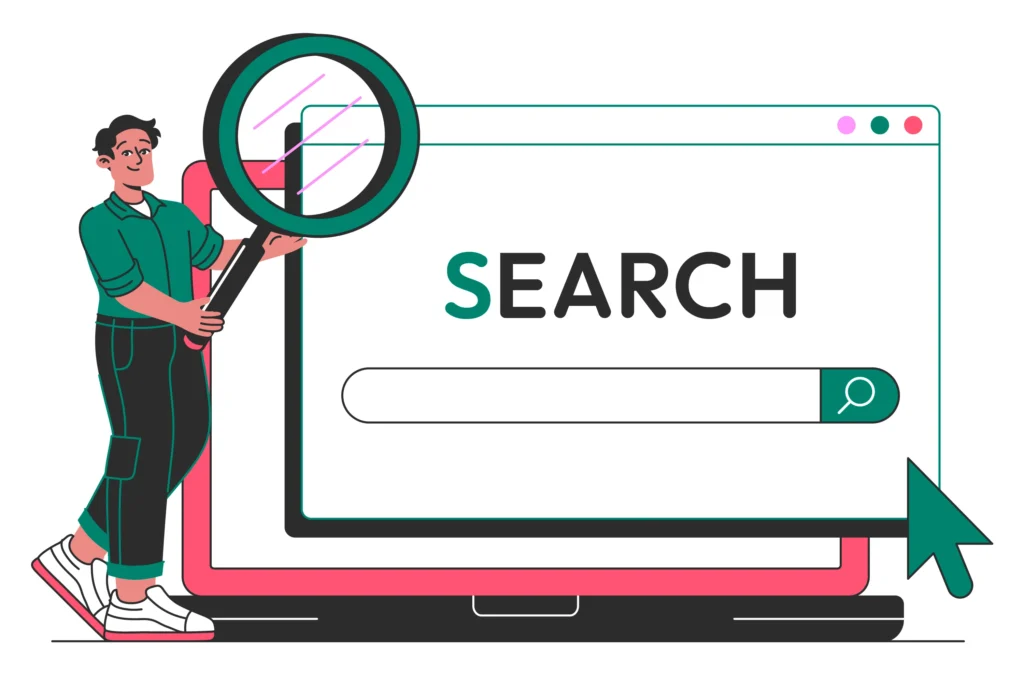
When it comes to Organic Search vs Paid Search, both have their own strengths — but understanding the core differences can help you choose the right digital marketing strategy.
Here’s a quick look at how they compare:
| Factor | Organic Search | Paid Search |
| Cost | Free (but requires SEO effort) | Pay per click (PPC) |
| Time to See Results | Slow (3–6 months typically) | Instant (as soon as ads go live) |
| Click-Through Rate | Higher for informational intent | Higher for high-intent keywords |
| Trust Level | More trusted by users | Often seen as less credible |
| Longevity | Long-lasting rankings | Ends when ad budget stops |
| Placement | Below the ads on SERPs | Top or bottom of SERPs |
| Control | Limited control over ranking | Full control over budget, keywords, and copy |
Organic Results vs Paid Results: The User Perspective
Users often trust organic results more, especially for research-based queries. Paid results, however, dominate when immediate solutions are needed (like “emergency dentist near me”).
Fun Stat to Consider:
According to Search Engine Journal, 70% of clicked search results are organic, while only 30% are paid — proving that even with ads on top, users still prefer to scroll down for trusted sources.
So, when comparing organic search vs paid search, it’s not just about visibility. It’s about how users interact with each type and how that impacts your business.
Pros and Cons of Organic Search
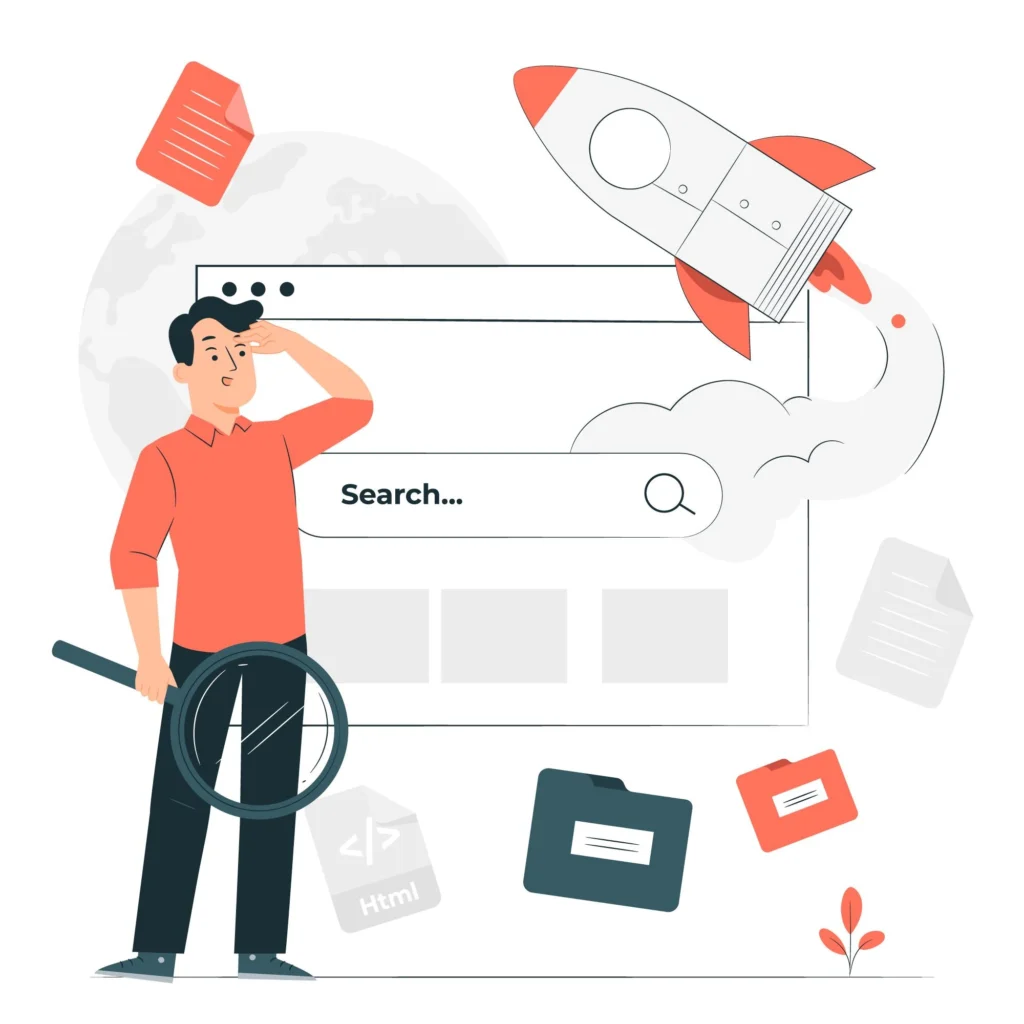
Benefits of Organic Search
- Long-Term, Sustainable Traffic
One of the biggest advantages of organic search is that once your pages rank well, they can bring in consistent traffic without ongoing ad spend. You’re building assets that compound over time. - Higher Trust & Click-Through Rates
According to Search Engine Land, 70% to 80% of users ignore paid ads and click on organic listings instead. That’s a major trust signal — especially for informational or comparison-based queries. - Cost-Efficient in the Long Run
While SEO takes time and effort upfront, it’s far more cost-effective than paid search over time. You’re not paying per click — instead, you’re investing in content and optimization that keeps delivering. - Supports Content Marketing & Brand Building
If you’re running a blog or thought leadership content, organic SEO helps your brand appear as a trusted voice. It’s perfect for top-of-funnel awareness. - No Ad Fatigue
Unlike paid campaigns, organic results don’t “wear out” or suffer from banner blindness. A blog post ranking #1 can continue performing for years without needing a creative refresh. - More Clicks Overall
Organic listings typically get more total clicks. One report from BrightEdge states that organic search drives 10x more traffic than paid on average.
Ranking organically requires strong on-page and technical SEO. Many businesses rely on expert SEO services to optimize their content and stay ahead of algorithm updates.
Drawbacks of Organic Search
- Takes Time to Build Rankings
Unlike paid ads, organic rankings take months to build, especially for competitive keywords. It requires patience and a long-term vision. - Algorithm Dependence
Google frequently updates its ranking algorithm. This means a page ranking well today could drop overnight if you’re not following best practices. - High Competition in Some Niches
For industries like finance, legal, or health, organic rankings are extremely competitive — sometimes requiring months of SEO and backlinks to see results. - No Guaranteed Placement
With paid search, you bid for a guaranteed spot. With organic, there’s no promise you’ll hit page one — even after solid SEO work. - Requires Technical & Content Expertise
Effective SEO isn’t just writing blog posts. It includes:- Keyword research
- On-page optimization
- Core Web Vitals
- Mobile-friendliness
- Structured data, etc
Without the right expertise or digital marketing tools, it’s hard to compete.
This section helps establish why organic search is valuable but also clearly sets up why some businesses still go for paid.
Pros and Cons of Paid Search
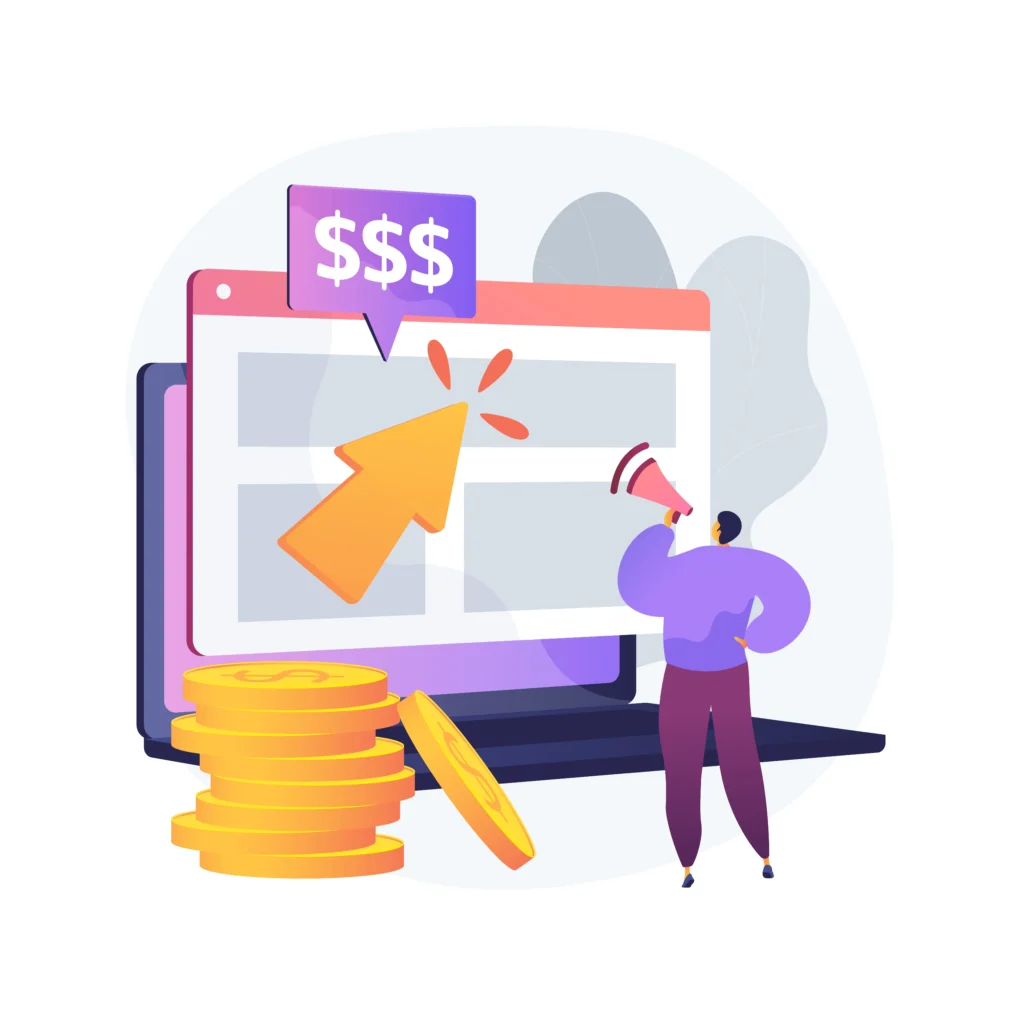
Benefits of Paid Search
- Instant Visibility
One of the most powerful benefits of paid search is speed. Your ads can appear on page one of Google within hours of launching a campaign — making it ideal for product launches, events, or time-sensitive offers. - Laser-Targeted Audience Reach
Paid platforms like Google Ads let you target by keyword, location, device, demographics, time, and even user behavior. That means your ads reach the right people, at the right moment. - Complete Control Over Messaging and Budget
You control everything — from the ad copy, call-to-action, and landing page to how much you spend per day. It’s flexible and scalable, especially for testing offers or launching new campaigns. - Easy to Track and Measure
With digital marketing tools like Google Ads and Google Analytics, you can see exactly how much you spent, how many clicks you got, and which keywords converted. It’s a data-driven marketer’s dream. - Highly Effective for High-Intent Keywords
When someone searches “buy CRM software now,” they’re likely ready to purchase. Paid search dominates these commercial-intent keywords, often converting faster than organic.
According to Google Economic Impact, businesses make an average of $2 in revenue for every $1 spent on Google Ads.

- Great for A/B Testing and Learning Quickly
Want to test a new landing page, offer, or message? Paid ads allow quick A/B testing, helping you refine your strategy and apply the learnings to other marketing efforts.
The same precision targeting used in paid search also applies to platforms like Facebook, Instagram, and LinkedIn — making social media marketing services a powerful complement to your PPC strategy.
Combining search campaigns with targeted social media strategies can help amplify reach, boost engagement, and retarget users across multiple touchpoints.
Drawbacks of Paid Search
- Can Get Expensive Fast
Some competitive industries have CPCs (cost per click) upwards of $20–$50+, especially in finance, legal, and tech. If not managed well, paid search can drain your budget without meaningful ROI. - Short-Term Results Only
As soon as you pause your campaigns, your visibility disappears. Unlike organic traffic, paid search stops when the money stops. - Ad Fatigue & Blindness
Users get used to ads and often skip over them. According to Search Engine Journal, many users actively scroll past paid results to find “real” answers in the organic listings. - Click Fraud and Wasted Spend
Sometimes, bots or competitors can click on your ads, leading to click fraud. Though platforms are improving detection, some wasted spend is almost unavoidable. - Constant Monitoring Required
Paid campaigns need ongoing optimization — adjusting bids, testing keywords, tweaking ad copy. If left unattended, performance can quickly decline. - Lower Trust Compared to Organic Listings
People know when they’re being sold to. Paid search listings are often perceived as less trustworthy than organic results — especially for educational content or unbiased product comparisons.
When to Use Organic Search vs Paid Search
Choosing between organic search vs paid search isn’t about picking a winner — it’s about knowing what works best for your goals, timeline, and budget. Here’s a simple guide to help you decide:
Use Paid Search When:
- You Need Quick Results
Launching a product? Running a limited-time offer? Paid search helps you show up instantly for high-intent keywords. - You’re Testing a New Market or Offer
PPC allows fast A/B testing of landing pages, ad messages, and targeting. It’s perfect for validation before investing in long-term SEO. - You Have a Budget and Need Scalability
If you can afford a daily ad spend, paid search lets you scale campaigns and track every conversion in real-time. - You Want to Target Specific Audiences
Use paid ads to laser-target by location, age, interest, device, or even income level — something organic SEO can’t do directly. - You’re in a Highly Competitive Niche
For industries where organic results take years to rank, paid ads help you get noticed without waiting.
Use Organic Search When:
- You’re Building a Brand Long-Term
Content-rich websites, blogs, or authority platforms thrive on organic SEO. It creates consistent traffic that grows over time. - You Have a Limited Budget
Can’t afford constant ad spend? Focus on SEO. It’s more time-intensive, but it builds equity in your online presence. - You Want to Attract Top-of-Funnel Users
People researching solutions or learning about their problems are more likely to click organic content than ads. - You’re Focused on Trust & Credibility
Organic search builds trust, especially for industries like health, education, and finance, where people look for unbiased information. - You Want Evergreen Traffic
A well-optimized blog or landing page can rank for years, driving leads and traffic long after it’s published.
A Quick Rule of Thumb:
| Business Stage | Best Option |
| New business/startup | Paid search for speed, then SEO |
| Growing business | Invest in both (hybrid strategy) |
| Established brand | Focus more on SEO + paid for boosts |
So now the question isn’t “paid vs natural search — which is better?”
It’s: “Which one supports your current goals best — or how can they work together?”
Can You Use Both Together? (The Hybrid Strategy)
Absolutely — and in fact, most successful brands do.
The debate of organic search vs paid search isn’t always about choosing one over the other. Often, the smartest move is using both in harmony.
This is called a hybrid strategy, and here’s why it works:
How Organic and Paid Search Work Together
- Double Your Visibility
By ranking organically and running a paid ad for the same keyword, you can dominate the SERP, pushing competitors down and increasing the chances of a click. - Use Paid Ads to Test SEO Opportunities
Before investing months into ranking a keyword organically, test it with PPC. If it performs well, you know it’s worth optimizing for in your content. - Cover the Full Buyer Journey
Use paid search to target high-intent keywords like “buy now” or “book a demo.”
Use organic content to nurture top-of-funnel searches like “how to choose the right CRM.”
- Build Retargeting Campaigns from Organic Visitors
You can use paid ads to retarget visitors who first found you through organic search — keeping your brand top-of-mind and increasing conversions. - Balance Short-Term Wins with Long-Term Growth
Paid search gives you fast results. Organic search takes time but pays off over the long run. Together, they create a stable, scalable traffic machine.
Combining organic and paid search is just one piece of a larger online growth strategy. To see the full picture, it’s important to explore the various types of digital marketing that drive results across multiple channels
Hybrid Strategy in Action: A Real-World Flow
- A user Googles “how to fix a slow website” and finds your organic blog.
- They read it and leave.
- Later, they see your Google Ads promoting your performance tool.
- They return and convert.
This combo of natural search + paid remarketing is powerful — and used by companies like HubSpot, Amazon, and Shopify.
Many successful brands partner with a professional digital marketing company to create and manage a hybrid strategy that blends paid campaigns with long-term SEO.
According to a Google study, ads that appear alongside organic results can increase total clicks by 89% compared to when a brand only ranks organically.
So yes — combining organic results vs paid results isn’t just possible — it’s recommended for smart marketers in 2025.
Which Delivers Better ROI in 2025?
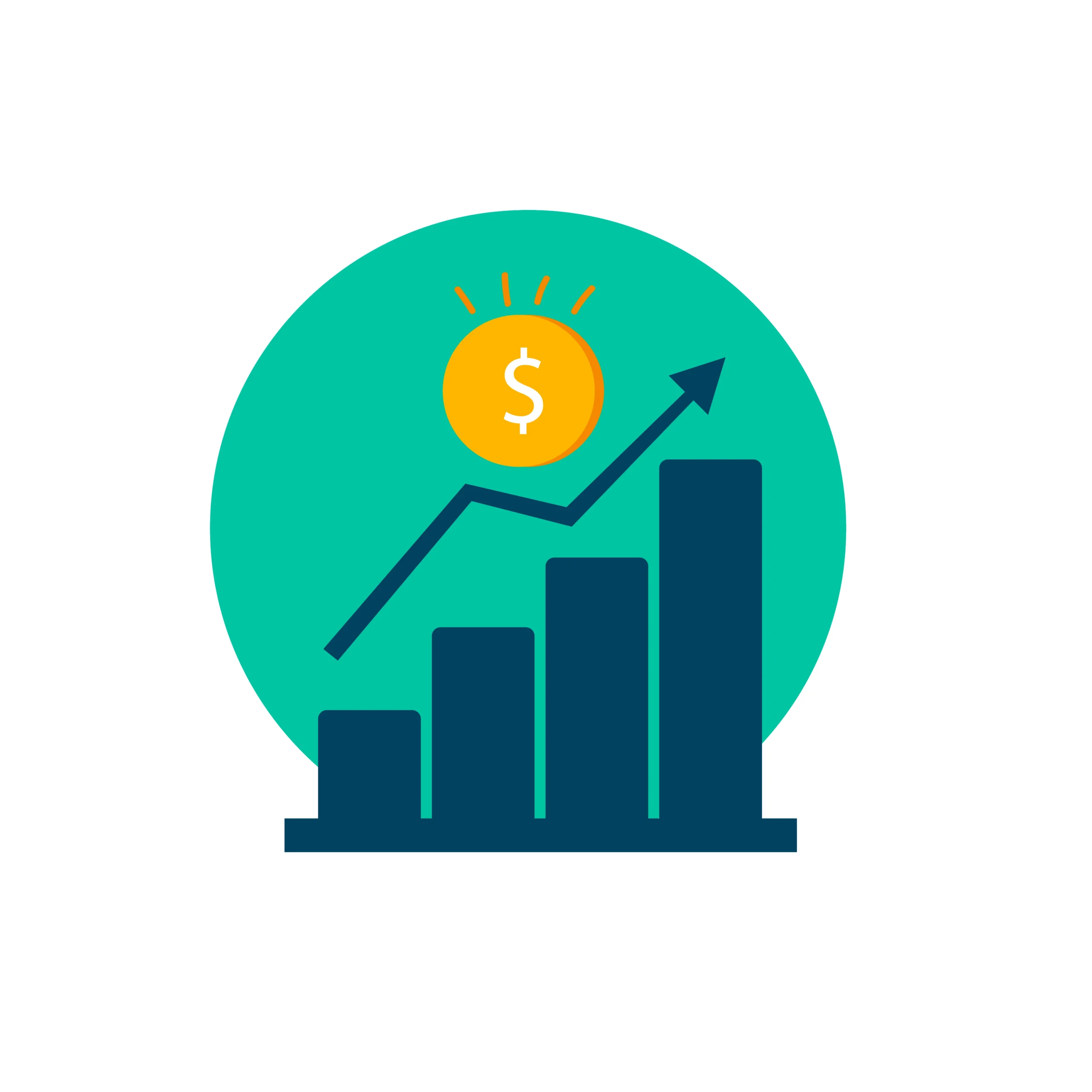
The big question: Between organic search vs paid search, which gives better ROI?
The answer? It depends — on your industry, goals, budget, and time horizon. But let’s break it down with real numbers and trends to help you decide.
The ROI of Organic Search
- 53% of all trackable website traffic comes from organic search.
(Source: BrightEdge) - Organic leads are 8.5x more likely to be clicked than paid ads (Search Engine Journal).
- Once your content ranks, it drives traffic without any ongoing cost per click.
- ROI grows over time as your content continues to rank without paying again — it’s an investment, not an expense.
Example: A blog that costs $300 to produce might bring in 5,000+ organic visitors over a year — at $0.06 per visit.
As automation and personalization become more important, AI in digital marketing is playing a major role in optimizing both organic and paid search strategies.
The ROI of Paid Search
- Google Ads users typically see $2 return for every $1 spent.
(Source: Google Economic Impact) - PPC delivers faster conversions — especially for high-intent, bottom-of-funnel searches like “hire digital marketer near me” or “digital marketing agency”.
- Paid search works great for:
- Product launches
- Seasonal sales
- Local targeting
- Retargeting lost leads
But — if you stop spending, the traffic disappears. That’s why paid search is great for scaling, but not ideal as your only digital marketing strategy for small business.
In the competition between organic vs paid search, paid search works well for time-sensitive campaigns and local SEO, where businesses aim to reach nearby customers searching for services ‘near me.
Paid vs Organic Search ROI: By Scenario
| Scenario | Higher ROI From |
| Long-term brand building | Organic Search |
| Immediate lead generation | Paid Search |
| Content-rich business (e.g. blogs) | Organic Search |
| E-commerce product launch | Paid Search |
| Low-budget campaigns | Organic Search |
| Aggressive growth + data testing | Paid Search |
| Balanced, sustainable traffic flow | Hybrid Strategy |
Pro Tip: Start with paid search if you’re launching, and layer in organic SEO as your foundation for sustainable growth.
So, while there’s no one-size-fits-all answer, the difference between organic vs paid search is clear: organic search delivers better ROI over time, whereas paid search wins in terms of speed and scale — especially when both are used strategically.
Choosing between organic vs paid search also depends on evolving trends in digital marketing, as user behavior and platforms change each year.
Wrap Up:
So — when it comes to Organic Search vs Paid Search, there’s no single winner. Both have unique strengths, and the best choice depends on your business goals, budget, and timeline.
- Want quick leads and instant visibility? Go for paid search.
- Want long-term growth and trust? Invest in organic SEO.
- Want the best of both worlds? Combine both for a hybrid strategy that balances short-term wins with long-term ROI.
Here’s your quick takeaway:
Paid search gets you seen. Organic search gets you trusted. Together, they get you results.
Whether you’re building a brand, launching a product, or scaling your online presence — understanding the difference between paid vs organic search will help you make smarter marketing decisions in 2025 and beyond.
Ready to take action? Start by evaluating where you stand, then build a plan that works for your growth.
FAQs
How long does it take to see results from organic search?
SEO typically takes 3 to 6 months to show noticeable results, depending on your niche, content quality, and competition. Unlike paid ads, organic results take time to build but are more sustainable.
Does paid search affect organic rankings?
No, running paid ads does not directly impact organic rankings. However, a hybrid approach using both can improve overall traffic, engagement, and conversions.
Which is more cost-effective: organic or paid search?
In the long run, organic search tends to be more cost-effective because it doesn’t require ongoing ad spend. However, paid search offers faster results and greater control over targeting.
Which is more effective for small businesses: organic vs paid search?
For small businesses with limited budgets, organic search offers better long-term value. However, paid search is great for quick visibility in local markets or during promotions.
How does Google decide which results are paid vs organic?
Paid results appear based on bidding and ad relevance in Google Ads. Organic results are ranked by Google’s algorithm based on SEO factors like content quality, user intent, and site authority.
Can paid ads improve organic rankings over time?
Not directly. However, running ads can increase brand exposure, drive traffic, and generate backlinks — which may indirectly benefit organic SEO.

